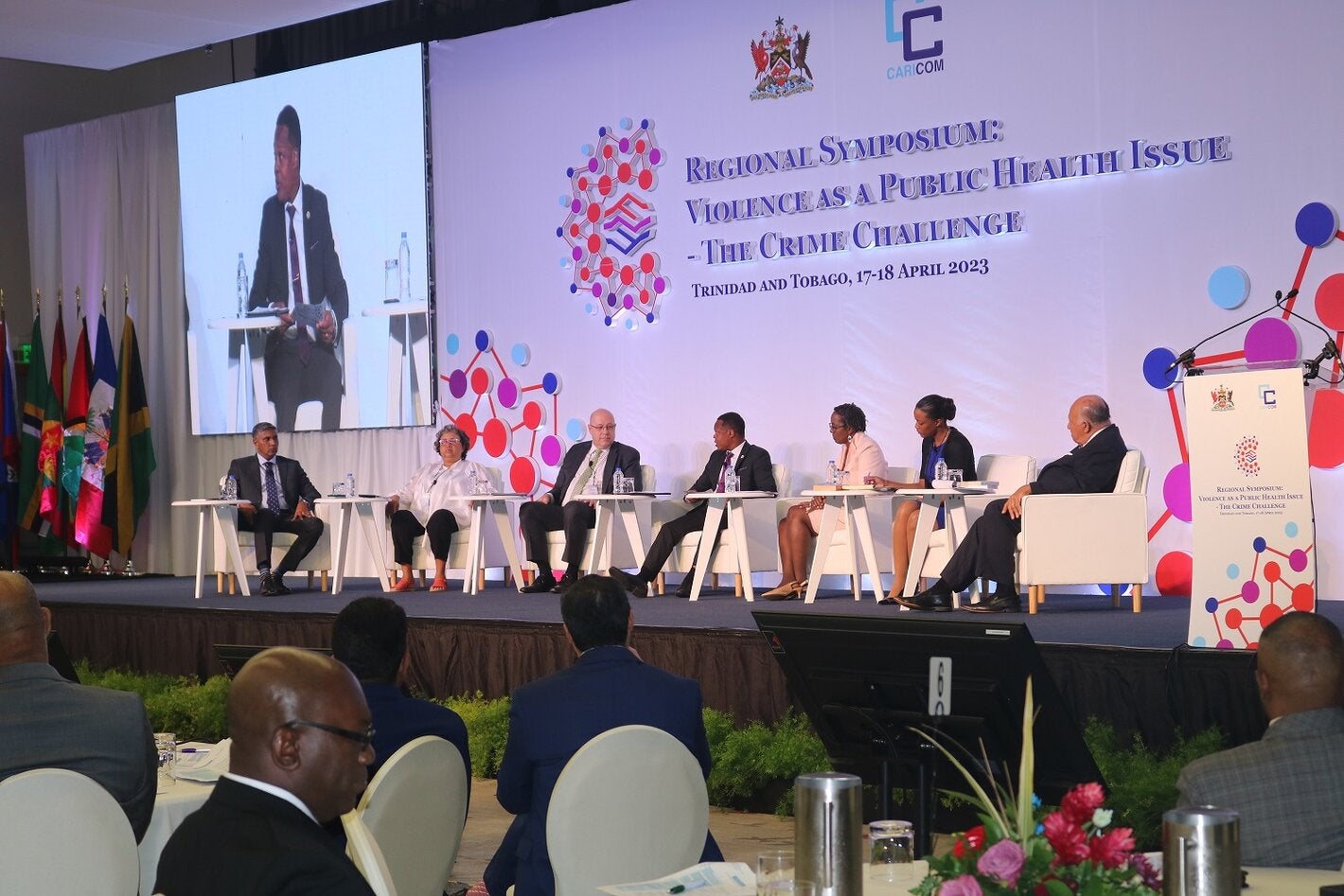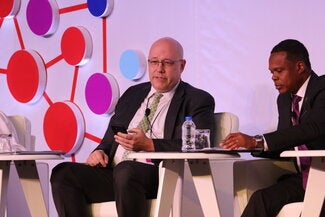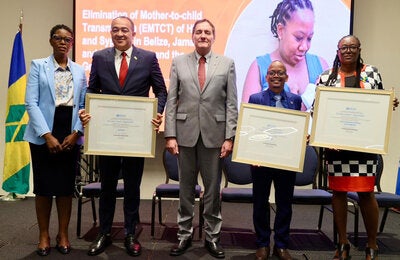
Port of Spain, Trinidad and Tobago, April 18, 2023 (PAHO/WHO) - According to PAHO, fighting crime and violence is a whole-of-society struggle, requiring collaboration between parents, teachers, health workers, church leaders, and policemen.
The PAHO-WHO Subregional Program Director for the Caribbean, Mr. Dean Chambliss, made these comments as he addressed the Caribbean region's leaders and experts at the high-level Regional Symposium: Crime and Violence as a Public Health Issue. The symposium took place in Port-of -Spain, Trinidad and Tobago. Mr. Chambliss also applauded Caribbean leaders’ commitment to tackle violence in societies with fresh ideas and evidence-based approaches.
Regional Heads of Government, ministers and policy makers, as well as leaders in varying sectors such as health, education, social work, law enforcement, criminal justice, and youth, participated in the two-day symposium. They collectively contributed their respective expertise in developing concrete plans to address the pressing issue of violent crime in the Caribbean. With a shared goal to tackle the root causes of violence and create a safer environment for all, these leaders pledged to place violence as a public health issue at the forefront of their regional and national agendas. This collaborative effort and commitment to addressing violence demonstrates a unified approach towards achieving lasting solutions to this complex issue that is increasingly affecting the Caribbean.
PAHO applauds the commitment by the CARICOM Heads of Government to tackle crime and violence as a public health issue. The symposium's declaration rightly stresses the importance of an integrated and robust response that strengthens education and criminal justice systems; improves equitable access to services, including mental health; supports parents and engages young people themselves, among others.
The region's homicide rate is more than three times the world average, with ten of the global top 20 countries and territories in terms of the intentional homicide rate located in the Caribbean. The human cost of violence goes far beyond homicide, and many forms of violence prevail in the Region. Violence results in enormous costs for health, development, education, tourism, and the economy.
A public health approach to violence prevention recognizes that different forms of violence intersect and compound each other. Evidence confirms that children who witness violence in their home are more likely to perpetrate or experience violence later in life. Violent discipline and corporal punishment in childhood increase the risk of gang involvement and criminal activity. PAHO suggests intervening early to break this vicious cycle and has developed a range of cost-effective and practical interventions that can lead to real change.
The strength of a public health approach is its emphasis on evidence-informed and data-driven solutions. As Mr Chambliss stressed, when the stakes are high, and when resources are limited, we must be guided not by hearsay and anecdotes, but by interventions that have been proven to work. This was reiterated by other leaders at the conference, recognizing that violence is preventable.
PAHO has long worked with Member States on violence prevention as a public health priority, with a particular emphasis on violence against women, children, and youth. The organisation recognizes that fighting crime and violence is a complex and challenging issue, requiring collaboration across sectors and actors. PAHO looks forward to collaborating with its Member States and partners in taking forward the commitments emerging from the Symposium.




